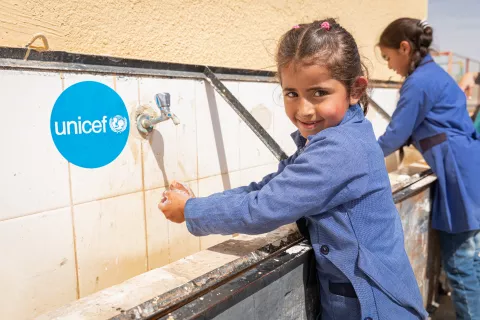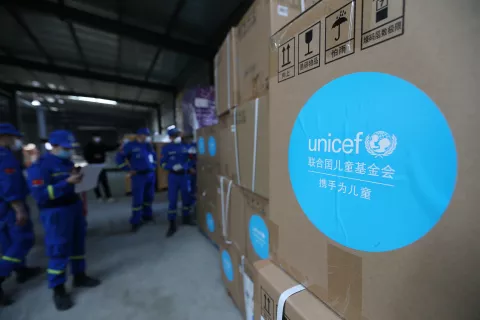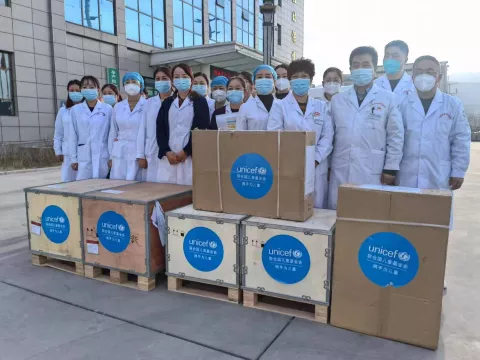UNICEF scales up support in 145 countries to keep children learning, as COVID-19 forces majority of schools worldwide to close

- Available in:
- 中文
- English
NEW YORK, 26 March 2020 – As nationwide school closures disrupt the education for more than 80 per cent of students worldwide, UNICEF today announced it will significantly scale up support in all countries to help children continue their learning while keeping schools safe.
“Schools in the majority of countries worldwide have closed. It is an unprecedented situation and unless we collectively act now to protect children’s education, societies and economies will feel the burden long after we’ve beaten COVID-19. In the most vulnerable communities, the impact will span generations,” said Robert Jenkins, UNICEF Global Chief of Education.
“Based on lessons learned with the school closures in response to Ebola, the longer children stay away from school, the less likely they are to ever return. Giving children alternative ways to learn and also by doing so, rebuild a routine is a critical part of our response,” said Jenkins.
To help curb the disruption to children’s education and keep children learning safely, UNICEF has allocated additional funding to accelerate work with governments and partners in more than 145 low- and middle-income countries. The initial global allocation of US $13 million – nearly $9 million of which is from a contribution made by the Global Partnership for Education – will be catalytic by supporting national governments and a wide range of education partners in each country to develop plans to enable a rapid, system-wide response.
The initiative will enable countries to prepare alternative learning programmes in the case of school closures and help schools keep children and their communities safe by providing vital information on handwashing and other hygiene practices. The funds will also help support children’s mental health and prevent stigma and discrimination by encouraging students to avoid stereotypes when talking about the virus.
In all 145 countries, UNICEF will work with partners to:
- Support governments’ crisis response plans including technical assistance, rapid risk analysis, data collection, and planning for the reopening of schools.
- Support the planning and implementation of safe school operation and risk communication including translating, printing, disseminating and implementing safe school guidelines; equipping schools with hygiene packages and circulating critical information on disease prevention; and training teachers and caregivers in psychosocial and mental health support for themselves and students.
- Ensure continuity of learning and access to remote learning programs including designing and preparing alternative education programmes through online, radio and television.
- Enhance knowledge sharing and capacity building for the current response and future pandemics.
Notes to editors
Earlier this month, UNICEF, along with the World Health Organization and the International Federation of Red Cross and Red Crescent Societies, released operational guidance on protecting children and schools from COVID-19.
Media contacts
About UNICEF
UNICEF works in some of the world's toughest places, to reach the world's most disadvantaged children. Across 190 countries and territories, we work for every child, everywhere, to build a better world for everyone.
| Visit UNICEF Global website: www.unicef.org Visit UNICEF China website: www.unicef.cn Follow us on Sina Weibo: http://weibo.com/unicefchina Tencent Weibo: http://t.qq.com/unicef Wechat: unicefchina |




